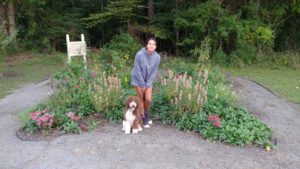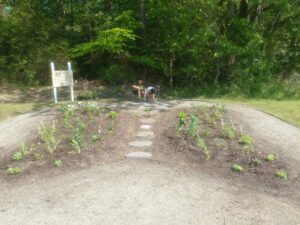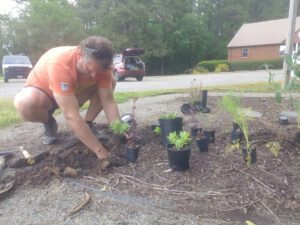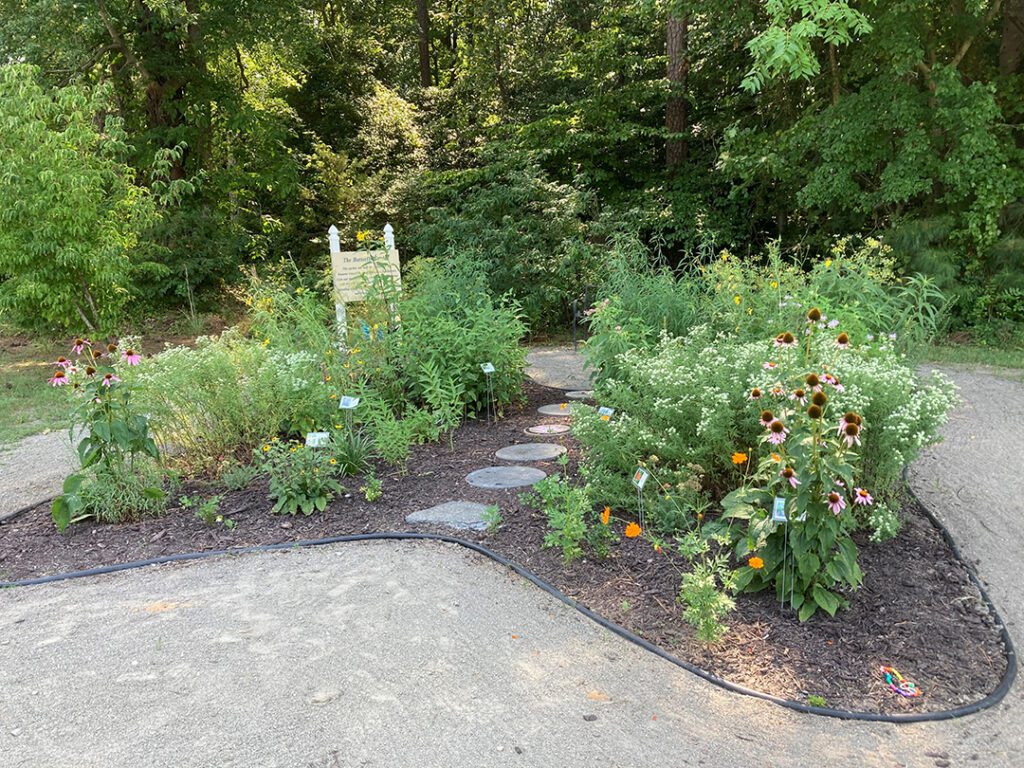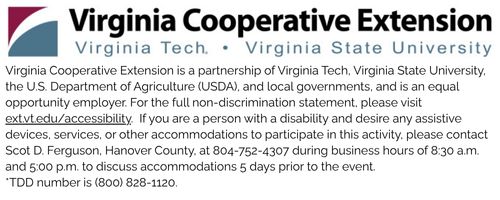Invitation to Visit the Butterfly Garden at Pole Green Park
Come explore the diverse collection of pollinator-friendly native plants at the Butterfly Garden in Pole Green Park. Each plant is meticulously labeled with comprehensive growing information, providing the knowledge needed to cultivate your pollinator garden.
Furthermore, our helpful resources and experienced Master Gardeners are just a call away on our Help Line, ready to guide you through any questions or concerns.
Don’t miss this opportunity to immerse yourself in the vibrant world of pollinators and contribute to their conservation efforts.
History of the Garden
In Pole Green Park, beside the parking area of the Community Building, you’ll find a beautiful pollinator garden. This collaborative effort, initiated in 1999, was a joint initiative between the EarthSavers Club of Hanover County Parks and Recreation and the Hanover Master Gardener Association (HMGA). The garden’s creation was made possible by generous donations from the local community.
The garden was completed and dedicated to Sara Bruehl, a recent high school graduate who had been awarded a horticulture grant from the HMGA. Sara had planned to study horticulture at Reynolds Community College and was passionate about butterflies. Sadly, she passed away unexpectedly before she could begin her studies at Reynolds. Sara had been an active member of 4H during her high school years.
The Garden Today
Over the years, the garden has become partially shaded, making it less than ideal for butterflies, which prefer sunny environments. Despite this, it remains an outstanding showcase of butterfly-friendly plants. All plants in the garden are native or cultivars of native species and are well-suited for dry soil conditions.
The garden attracts a diverse range of pollinators, including various species of bees, wasps, flies, moths, and some butterflies. As winter approaches, the once-flowering seed heads are visited by songbirds looking for food.
The soil and environment are protected by the non-use of chemical pesticides and fertilizers and mulched with chopped leaves or wood chips that will amend the soil as they decompose. Through these practices, the garden rarely needs watering.
In this garden and the Native Landscape Garden, situated at the Virginia Cooperative Extension Office in Ashland, the Hanover Master Gardeners actively employ sustainable conservation techniques. Our fundamental goal is to promote low-maintenance gardening practices that support wildlife, conserve natural resources, prioritize environmental friendliness, and incorporate sustainable materials. By doing so, we aim to inspire and educate the community about responsible and eco-conscious gardening methods.
Resources
The Plant RVA Natives campaign promotes the use of plants native to the region in urban and suburban landscapes for their many social, cultural, and economic benefits and to increase the availability of these native plants in retail centers throughout the region. Native Plants for Virginia’s Capitol Region, published by Plant RVA Natives, is available on their website for download. A printed copy is available at Virginia Cooperative Extension – Hanover Unit located at 13015 Taylor Complex Lane, Ashland, VA 23005
The Xerces Society for Invertebrate Conservation is an international nonprofit organization that protects the natural world through the conservation of invertebrates and their habitats. As a science-based organization, they conduct research and rely upon the most up-to-date information to guide conservation work. Key program areas are pollinator conservation, endangered species conservation, and reducing pesticide use and impacts.
The Butterfly Identification website provides guides for all butterfly insects in the US. For a guide to Virginia Butterflies, follow this link.
Creating Inviting Habitats for birds, butterflies, and hummingbirds is a Virginia Cooperative Extension publication that provides information on backyard natural habitats.
How to Create a Butterfly Garden Habitat.
North American Butterfly Association provides essential information for every butterfly garden.
Native and Solitary Bees in Virginia, a publication of Virginia Cooperative Extension.
Virginia Cooperative Extension publication search on a variety of gardening opportunities.
